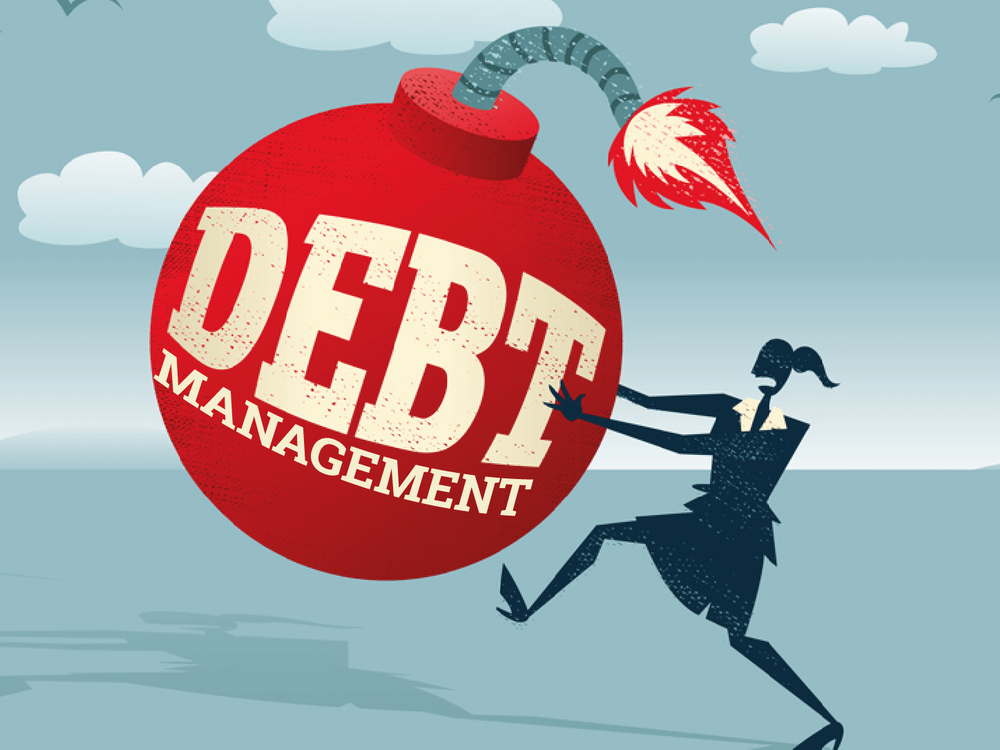Why You Need To Take Into Consideration Debt Management Plan Services for Managing Your Finances
Why You Need To Take Into Consideration Debt Management Plan Services for Managing Your Finances
Blog Article
Expert Tips and Strategies for Implementing a Successful Financial Debt Monitoring Plan
When it pertains to navigating the intricacies of financial debt administration, having a well-thought-out strategy is important for attaining economic security. Carrying out professional ideas and methods can make a considerable distinction in your journey towards financial debt relief. From analyzing your current monetary standing to discussing with creditors, each step plays a critical duty fit a successful financial debt monitoring strategy. By understanding the complexities of financial debt management and adopting proven approaches, people can lead the way for a much more safe and secure financial future.
Analyzing Your Present Financial Circumstance
Prior to embarking on a debt monitoring plan, it is important to extensively assess your existing financial standing. Comprehending your financial situation is the foundational step towards efficiently taking care of and reducing your financial debt. Begin by putting together an in-depth list of all your debts, consisting of outstanding balances, rates of interest, and minimal regular monthly payments. This will certainly offer a clear introduction of the extent of your monetary obligations. In addition, examine your earnings resources and month-to-month expenses to establish your disposable earnings available for financial debt settlement.

Developing a Realistic Budget
Comprehending your present economic situation prepares for establishing a sensible budget plan that aligns with your debt management objectives and economic capacities. When creating a spending plan, it's important to accurately track your income, expenditures, and financial debt obligations. Start by providing all income sources, consisting of wages, perks, and any kind of added revenues. Next, detail your repaired expenses such as rental fee or home mortgage payments, utilities, insurance, and financing repayments. Variable expenditures like groceries, entertainment, and transport must likewise be made up. By categorizing your expenditures, you can identify locations where you may need to reduce to maximize funds for financial debt repayment.

Prioritizing and Taking On Debts
To effectively restore control of your funds and work towards economic stability, prioritizing and tackling your financial debts is a vital step in your financial obligation management strategy. Identify high-interest financial obligations that are costing you the most money and prioritize paying them off.
After identifying your high-interest financial obligations, think about using techniques like the debt snowball or financial obligation avalanche method to pay them off methodically. The debt snowball approach involves settling the tiniest debts first, while the financial debt avalanche approach prioritizes financial obligations with the greatest rate of interest. Select the method that straightens best with your financial goals and inspires you to maintain making progression.
In addition, take into consideration negotiating with creditors for reduced rate of interest or establishing a payment plan if you're battling to fulfill your present responsibilities. Seeking aid from a credit score counselor or financial consultant can likewise provide important understandings and guidance on how to successfully tackle your financial debts - debt management plan services. By focusing on and addressing your financial obligations strategically, you can lead the way towards a debt-free future and enhanced economic well-being
Negotiating With Lenders
When involving in financial debt administration, negotiating with financial institutions is helpful site a critical step towards locating equally beneficial solutions for financial obligation payment. Before starting arrangements, it is vital to have a clear understanding of your financial scenario, including your income, expenses, and the complete quantity of debt owed.

Building Healthy And Balanced Economic Practices
Including consistent budgeting methods is important for cultivating healthy and balanced economic behaviors. Budgeting enables individuals to track their earnings and costs, enabling them to make informed choices about their monetary concerns. Establishing certain economic objectives, such as conserving for emergencies or retirement, can supply a clear roadmap for managing money effectively.
An additional key facet of structure healthy and balanced economic practices is living within one's means. This includes investing less than what is earned and avoiding unnecessary financial obligation. Distinguishing and taking on a penny-wise state of mind between wants and needs can assist individuals make more prudent investing selections.
Consistently reviewing monetary declarations and monitoring credit rating reports are important behaviors that promote economic recognition and duty. By remaining notified regarding their financial standing, individuals can identify prospective problems early and take aggressive steps to resolve them.
Moreover, developing a financial savings habit, despite little quantities, can add dramatically to long-lasting economic security. Saving frequently not just constructs a monetary cushion for unexpected expenses however also cultivates a sense of self-control and responsibility in the direction of cash administration. By constantly practicing these practices, individuals can lay a strong structure for a secure economic future.
Final Thought
To conclude, carrying out an effective financial debt monitoring strategy requires a complete analysis of one's financial scenario, the growth of a practical budget plan, prioritizing and taking on financial obligations, view it working out with creditors, and structure healthy financial practices (debt management plan services). By complying with these professional suggestions and techniques, individuals can take control of their financial resources and job in the direction of achieving economic stability and flexibility from financial debt
Understanding your existing financial situation lays the foundation for establishing a realistic spending plan that aligns with your financial obligation administration goals and monetary abilities.To efficiently gain back control of your financial resources and job in the direction of monetary stability, prioritizing and tackling your financial debts is a critical step in your debt management plan.After identifying your high-interest debts, take into consideration making use of methods like the debt snowball or financial debt avalanche method to pay them click to read off systematically. The financial debt snowball method involves paying off the tiniest financial obligations first, while the financial debt avalanche method prioritizes debts with the highest interest rates.When engaging in debt monitoring, negotiating with lenders is an essential step towards locating equally valuable solutions for debt settlement.
Report this page